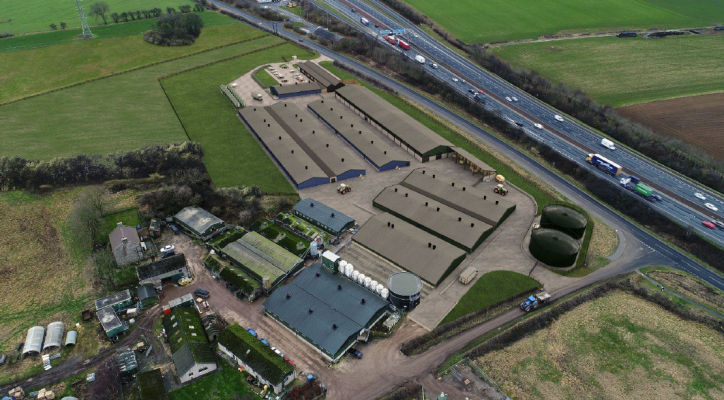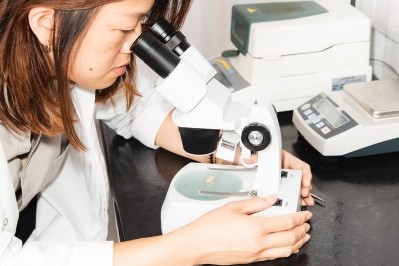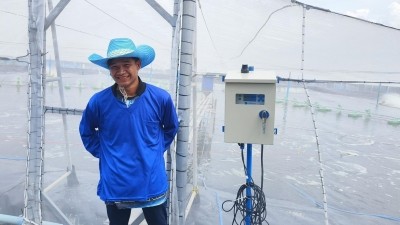Leeds University and Entocycle to investigate the safety and efficacy of feeding insects pig manure

This summer will see Entocycle deploy a self-contained insect-raising unit at the Centre for Innovation Excellence in Livestock’s (CIEL) National Pig Centre, situated on the University of Leeds (UoL) Research Farm – the unit will help the team evaluate the use of pig manure and slurries as a feedstock for black soldier fly (BSF) and potentially other insect species.
The unit is fitted with an environmental control system and wi-fi data monitoring and is funded by UKRI-BBSRC on behalf of UK Research and Innovation.
“Entocycle is providing the cutting-edge data collection ability within a containerized solution, which is needed to ascertain the safety and efficacy of using manure as a substrate. The focus will be on allowing a safe working environment while conducting this crucial scientific research,” explained Will Bisset, chief commercial officer, Entocycle.
Partnerships with like-minded and forward-thinking experts and research and innovation institutions such as the UoL are critical to advance the utilization of insects in food and feed supply chains, he said.
The National Pig Centre is the UK’s largest and most advanced facility for research into pig nutrition, behavior, welfare, health, and production systems; the UoL Research Farm is currently being developed as a testbed for the integration of technologies that support sustainable approaches to net zero.
When asked why the partners chose to focus the research alliance on manure and slurries as insect rearing feedstocks, Bisset told us that manure is a waste product, often one that gets washed into local waterways, with negative effects on local wildlife.
"We see insect farming as the perfect solution for farmers to valorize this waste product. This is of course dependent on legislative changes in the UK coming into effect, but we are optimistic of this in the near term with increasing global pressures on protein supply and with the need for government and businesses to meet approaching net zero targets.”
Regulation
The EU amendments made in 2021 to Regulation 999/2001 permit the feeding of insect protein to pigs, poultry, and fish. Those changes also apply to Northern Ireland but, in the rest of the UK, the retained provisions of Regulation 999/2001 only allow for the feeding of insect protein to fish.
Currently, a limited range of feedstocks is allowed to be used for insect rearing in the UK and in the EU - plant derived materials, residue from fruit and vegetable processing and non-animal-containing by-products of brewing, bakery, breakfast cereal and confectionary manufacturing.
Knowledge gaps
The CCO noted that quality research data already exists suggesting that manure is a suitable substrate for raising BSFL but that there are aspects of its use as an insect rearing feedstock that are not yet quantified.
“We know that consistency of feedstock for BSFL is crucial so pre-processing will be required, along with the potential for contaminants to build-up to unacceptable levels in the final products. Long term tests need to be carried out to prove the safety of this feed source. The second aspect is the safety of staff and that is why we are carrying out rigorous H&S and operations protocols.”
The researchers, continued Bisset, will evaluate a variety of safety parameters related to the handling the substrate, the safety of the manure when it is being fed to the insects given that there can be a build-up of dangerous gases, and the safety of the end products.
As regards the team examining whether there are compounds in the manure that help to achieve higher bioconversion efficiencies in BSFL, he said that is not a research focus of the project: “The cost of material and availability make manure a viable substrate. Trials around feed conversion ratios will be run to ascertain minimum expected levels so farms can be designed for maximum efficiency.”
"Insect biotechnology has huge potential to provide future solutions to on-farm management of manures and slurries, as well as reducing carbon emissions. This partnership will bring together our collective talents and expertise to address significant environmental challenges, such as waste management, food sustainability and climate change." - Dr Gesa Reiss, Smart Agri-Systems Senior Innovation Fellow at the University of Leeds
According to the UK Environment Agency, farming is now the biggest cause of river pollution in the UK. Animal excrement and effluent high in phosphate and nitrate are often spread over fields which end up seeping into local waterways, causing algal blooms and a heavy decline in aquatic life.
Additional studies
A study published in 2021 found that incubating pig manure with BSFL reduced manure nutrient levels, with reductions in nitrogen, carbon, energy, phosphorus, and potassium in the residual material, potentially decreasing the environmental problems caused by surplus manure on farms.
According to findings of research done at Wageningen Livestock Research, BSF can form a key link in circular agriculture, and they grow well on unused waste streams such as catering waste or pig manure.
Earlier this month we reported that Fera Science is to lead a study investigating risks linked to using novel, currently non-approved waste substrates to rear insects. The UK’s Food Standards Agency (FSA) is backing the project, with participants including UK based insect industry players, Better Origin and Entec Nutrition, as well as the University of Surrey.
The International Platform of Insects for Food and Feed (IPIFF) has long been advocating for a wider range of approved raw materials to rear insects. A publication it released last year outlines how “widening the possibilities of using new substrates will play a key role in enhancing the circularity of insect production, helping European insect farms to reach their full potential. The inclusion of former foodstuffs containing meat and fish, followed by catering waste, will be an essential pillar – such materials, not suitable for other farmed animals are better upcycled by insect bioconversion. To complement the increasing demand for protein in both human food and animal feed, these ‘yet unauthorized’ substrates would enable the European insect sector to reach the expected level of production.”












